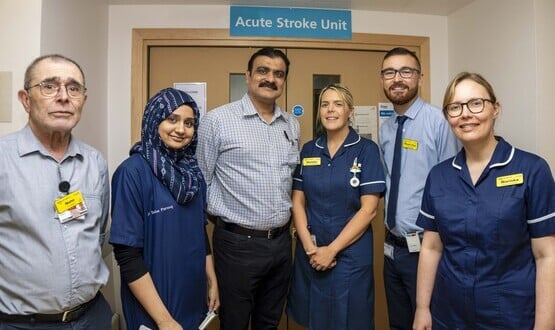iBleep PDA paging made available to all trusts
- 14 November 2006
A new software system called iBleep, designed to simplify communications with doctors at night, is set to be rolled out across the NHS in April next year.
The iBleep Rapid Response system is a web-based application, accessed over a PDA, that provides a wireless system for communication between hospital-based doctors and their wards, allowing voice contact for teams who are on call.
Doctors accessing the system using PDAs manufactured by Hewlett Packard can generate, accept and interact with voice calls generated from the wards. The urgency of calls is weighted using a ‘traffic light’ colour coding system, similar to the system used in A&E departments to decide priority cases.
After successful trials over the past two years, the iBleep Rapid Response system is to be made freely available to trusts across the NHS thanks to a partnership with the National Workforce Project (NWP).
The system has been in use at South Tees NHS Trust since 8 November 2004, where lead systems analyst Roy Walter, oversees the system.
He told E-Health Insider: “We are fully live with the system here at South Tees. The night ward teams no longer need to use the old paging system to alert doctors of cases. Instead, the night nurse in charge of the ward after hours can assess calls entered onto the system by ward staff and transfer it to an available doctor, competent to perform the specific task."
Walter explained how the system worked: “The colour-coded system alerts doctors to the urgency of the case and it really is a case of ‘intelligent bleeping’ – doctors don’t need to phone a ward to find out what they are being paged for, they now have full details of why they are being called and where they are needed."
He added that a freetext facility also allowed for further communication and provided the ability to request more specific help. Staff can also record standard clinical information about patients onto the system and they can use the PDAs to send text messages.
Walter said that in the past two years, they have made 75,000 calls on the system and doctors are pleased with the new facility.
The iBleep system can collect information from hospital PAS systems if an Open Database Connectivity (ODBC) interface is in place, but records cannot yet be written back to the PAS.
In addition iBleep complies with the Working Time Directive 2009 providing a detailed audit on doctor activity throughout the night and can generate reports using Excel.
The system has received widespread industry recognition since its launch two years ago. Last year, it picked up the HSJ award "Improving patient care with e-technology" category. It was also in receipt of a Connecting for Health accolade this summer.
iBleep has now agreed a partnership with the National Workforce Project (NWP) to provide the whole of the NHS in England as a completely free downloadable system. Hospitals will be responsible for providing the infrastructure and training on the system.
HP is working with the trusts to provide full technical support to the PDA users. Once installed trusts will be free to configure it to their own style of working.
Free support for set up is available from 1 April 2007 for 12 months. The system has been installed in Birmingham and is being set up by the Greater Manchester Strategic Health Authority.




